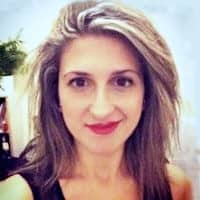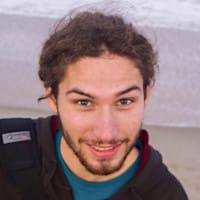#PHDstory | Nadine Mirza

What is your research project?
The area I am looking at is focused on dementia in an ethnic minority, and I’m specifically looking at British South Asians, because I am South Asian myself. What we are seeing right now is that dementia is one of the leading causes of death; it is in the national dialogue a lot, everyone knows someone with dementia. When it comes to British South Asians, there is a high susceptibility of being diagnosed with dementia, which is due to a variety of reasons. For example, we have a lot of risk factors, so people with diabetes and heart problems are more likely to be diagnosed with dementia. British South Asians happen to have a high rate of this problems. We also have lifestyles and belief systems that do not allow us to receive education on dementia as much as other ethnic minorities, and when we do see problems, like people showing up signs of dementia, we prefer to keep the issue within the family because of stigma and the belief that only family needs to take care of family and we do not want outside intervention.
So, my research project is very specific and focuses on memory clinics. Memory clinics are places where you go, referred by your GP, if you think you have dementia. When you go to these memory clinics, they do lots of tests, assessments and interviews to officially diagnose you. What we see is that although British South Asians have all those high risk factors, they do not show up to memory clinics, even when they get a GP referral; or, when they do show up, they drop out before the full assessment is done.
So, my project is to understand why this is happening, why are they not accessing this service even though they need it, and what can I do to fix this. We are hoping to create some sort of tool kit which will have training for memory clinic staff, educational material, diagnostic tests for dementia that focus on British South Asians, and improve their access to memory clinics.
Is yours a new approach?
It isn’t essentially a new approach more than it’s building up on all the research done in different areas. For example, we have seen that the same issue happened in primary care services, and this kind of approach improved access to GP. The same happened with other mental health problems, and this kind of approach improves interventions for depression, anxiety and so on. But when it comes to dementia, this is quite new. It is basically recycling an old method for a new problem.
Do you collaborate with other research groups?
Essentially, the research project is taking place in the Centre for Primary Care Health here at the University, so they technically own the project. My specific research team is supervised by Dr. Waquas Waheed, a psychiatrist here at the University, and he is leading the first ethnic minority research in primary care division in the UK. So, here is where the research is based. But, we are hoping to eventually collaborate with other research groups as well as with NHS trusts to get our work in the system.
How did you get interested in this field?
To be honest, I kind of fell into it. I had never imagined that I was going to do research and I would be working on dementia. Obviously, dementia is a topic that is coming up a lot, and as I said, everyone knows someone who has dementia – I know someone who has dementia -, so it becomes almost personal in a certain way.
I guess I became interested in it because everyone was talking about it, and when it comes to ethnic minorities, I am an ethnic minority, and I see the struggle of British South Asians when it comes to mental health in general. So, I wanted to get involved in ethnic minorities even if it was not dementia. It just happened to be dementia.
What does science need right now?
I think science needs better representation, because science is something that seems very unapproachable to the general public, something which is very exclusive, and therefore not fair. Something, you know, elitist. Or it seems that scientists are trying to scare everyone because it gets misportrayed all the time; we make little steps in science and the media latches onto it.
We tend to overestimate knowledge and underestimate intelligence. Not everyone knows the things that we scientists know, but that does not mean they do not have the capacity to understand it if we just explain it to them.
What is your ideal society?
I think I would like a more open minded society. To thrive as a society, I think everyone should be open minded and a critical thinker. Having an open mind exposes you to the idea that you may not know everything and there is so much more to learn. There are so many different ways to be and not one way is right.
Critical thinking is something that makes you question what everybody is saying. I can see different cultures and religions, but no one questions, everyone just does. But if you know why you are doing things, that is very important.
Is there anything that you would like to change about science right now?
There is not a lot about science that I feel needs to be improved, probably because I have not been exposed to the bad side yet, but I do think that even within our community of scientists there is still exclusivity. Little cliques in different fields, a hierarchy where the uppers are always with the uppers and the lower students hang out with the lower students. Maybe that line needs to blur, and those divisions need to fade. One science is not better than another.
Because I focus on mental health and psychology a lot, I hear a lot of flack about how it is not a hard science and it is not real research. And I think we do not need any of that kind of talk, because it prevents collaborations and cooperations. It is really unnecessary.
Is there a story you would like to share with us?
Today during my first year interview viva, they (the examiners) were reading my report and kept saying that I wrote ‘We did research’, and ‘We got results’. We, we, we… and they said, “You need to say I”, and I thought that does not sound proper. “You need to take ownership that this is your own research project”, I was told. And I kept thinking, Yes, this is my project and I should say I, but I feel this is not a solo effort, because it goes way beyond. There is you, your supervisor – Dr. Waquas Waheed, in my case -, all the people in your department you run into and say “Oh, you are an expert in this, can you teach me this, can you teach me that…”. The project would not be possible without them.
There is the family and the support that I have. I know that those people (the examiners) don’t care, but I have a very, very supporting family: a dad and a mum who always valued higher education and the importance of having a career. I have a brother who is like my best friend, who will come in the middle of the night when I am really upset with ice cream or food or to take me out to see a movie. I have a fiancé who, when I am really upset, will transcript data for me, or help me find the different software I need, or simply listen to me rant about the project. I have friends who have now left University; they have their own lives and families and careers, but they will still run to help me when I need them. So, I do not think I can emphasize enough how we keep getting told (phd) is a solo effort, but it really should not be.
Thank you!

“It was really interesting interviewing Nadine, as she was the first PhD student working on a not hard science project.
It is really curious to see how psychology can be combined with a social aspect, ethnic minority in this case. I believe you will find Nadine’ s work extremely interesting too.”

“It was really interesting interviewing Nadine, as she was the first PhD student working on a not hard science project.
It is really curious to see how psychology can be combined with a social aspect, ethnic minority in this case. I believe you will find Nadine’ s work extremely interesting too.”





